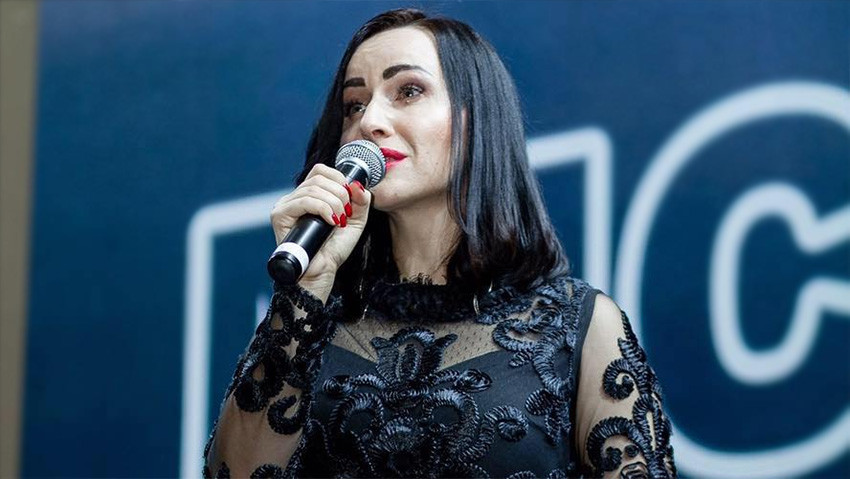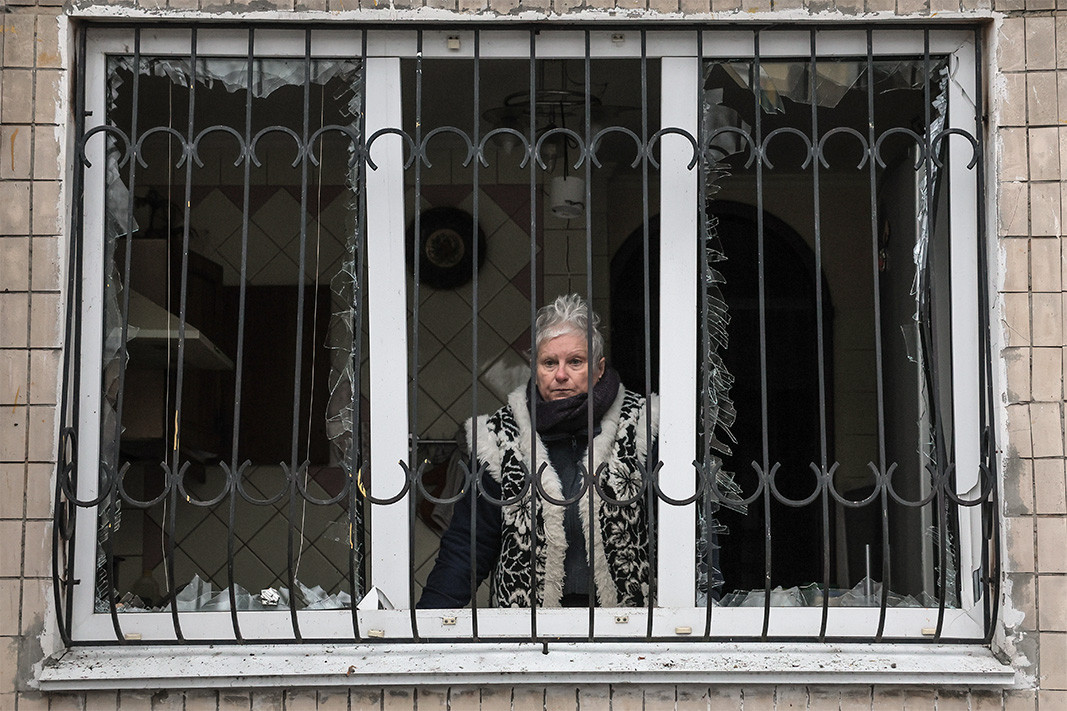It is two years since that February morning in 2022 when life changed in Europe and beyond, and the world found it had to rethink its relationship with the Russian Federation. But in this piece we shall not be looking at the effects of the war, we shall present the emotional stories of life in wartime, of two women – Bessarabian Bulgarians. One is a film director and the other – a schoolteacher, what they share is their love of their country – Ukraine.
“There is not a single person who has not lost something or someone,” says film director Tetiana Staneva in an interview with Radio Bulgaria and adds that the number of people who are feeling dispirited is growing at an alarming rate:
“I stayed in Ukraine and I travel to Bulgaria when there is work to be done on some project, but I live in Ukraine. My family is there, and for me things have not changed radically, because the war started in 2014. I have always loved the land, Ukraine, my village and the war has only amplified that. The stories I know from friends who had to leave their homes and will never return… Tell me, how do these people feel and how can they have any hope of a new life…”
Many of her friends left the country and often had to start an entirely different job just to put food on the table and to help their families. Many of Tetiana’s film projects are also on pause, or are lost entirely, but despite all difficulties she is not giving up.
The death of Russian opposition leader Alexei Navalny evoked a mixed reaction among Ukrainians, but Tetiana says it signals one thing: 
“This regime is going to hold on to its power, as we have seen so many times before – with Boris Nemtsov and Anna Politkovskaya, and now with Navalny. There is no hope for change in Russia. We have seen that over centuries, and some people started realizing it after 24 February, 2022. Since 2014 everyone tried to somehow talk to him, to come up with economic schemes that will make him give up the war. And what happened? They just fed the monster and it grew bigger,” Tetiana Staneva says. “We’ve run out of people! That is what I want to say. Politicians in Ukraine keep fighting amongst themselves because there is no one left to mobilize. They take people away from their jobs, but someone has to work. The economy is in ruins, and as a state structure we won’t hold out if everyone goes to war.”
Nina Bikovska’s personal story is also directly connected with the war as her husband is an officer. The start of the war found him in Eastern Ukraine, and he has been there ever since. His wife communicated with him via messages. She remembers that in the days around 24 February, 2022, it was really difficult for her to comprehend what was happening, but she quickly came out of her stupor and started her volunteer campaigns:
“We collected clothing, food, medicines,” Nina remembers. “People would bring money and we would buy everything our boys needed, and we would transport it, with special permission, to designated locations. We still buy them things, and now it is easier because we now have a bank account where people can transfer money.”
Her eldest daughter and her brother live in Bulgaria – in Sofia and in Varna, and they too raise and send money needed for clothing and other items. “With the money they and their colleagues raised they were even able to buy a drone,” Nina explains. But she has been encountering difficulties with the local authorities in Bolhrad:
“We asked them for specific help. The boys needed drones, cars, other equipment. We asked the mayor and he said they wouldn’t buy these things. That is why we are relying on people who understand what we need.”
Other than being a volunteer, Nina Bikovska is a school teacher in Bolhrad, where she also teaches at a kindergarten. But war is something you can never get used to, it “consumes” humanity and hope!
More:
Translated and posted by Milena Daynova
Photos: EPA/BGNES, BGNES
October 17, 2025 will go down in history as the date on which the Minister of Culture of Hungary presented the document with which the Tradition of Bulgarian Gardening in Hungary officially entered the UNESCO National Register of..
The center of Bulgaria's town of Asenovgrad is today turning into a colorful scene of flavors, aromas and traditions, in which the spirit of the Red Wall Biosphere Park comes to life , reports BNR's Radio Plovdiv. At the “Festival of Crafts and..
"Folklore is a need for humans and this need will not disappear just like that, " says Assoc. Prof. Dr. Natalia Rashkova - ethnologist and folklorist, university lecturer and researcher with a strong contribution to the study of..
How to preserve and maintain public trust in media - this is the central topic for participants in the Public Broadcasters..
The virtual space where you can find information about Bulgarian restaurants in Berlin, the services offered by Bulgarian craftsmen, as well as addresses..
From today until 28 October, Vidin will transform into a cultural hub to celebrate its patron saint's day - St Dimitar's Day (Dimitrovden). The new..

+359 2 9336 661
